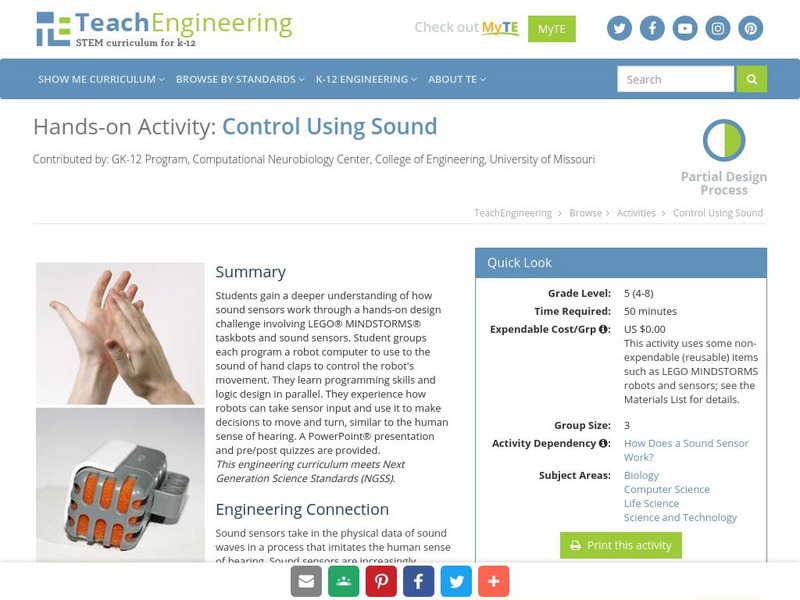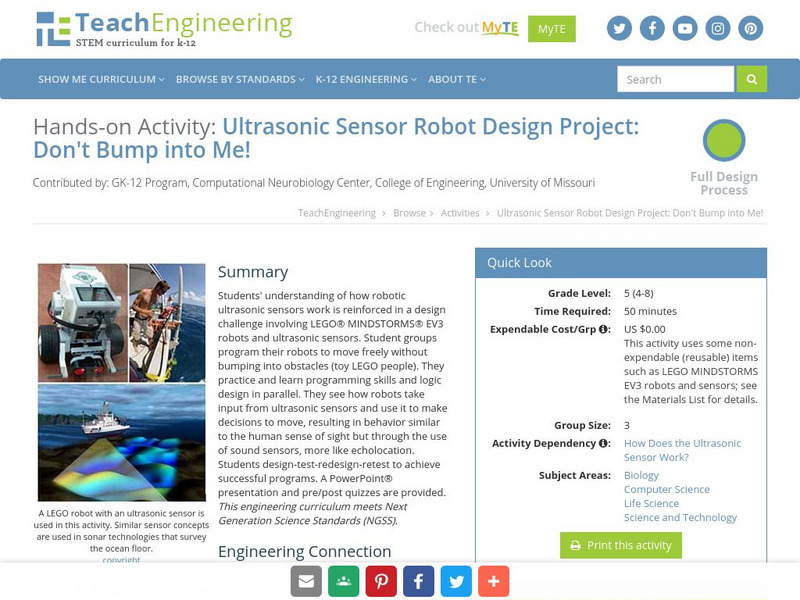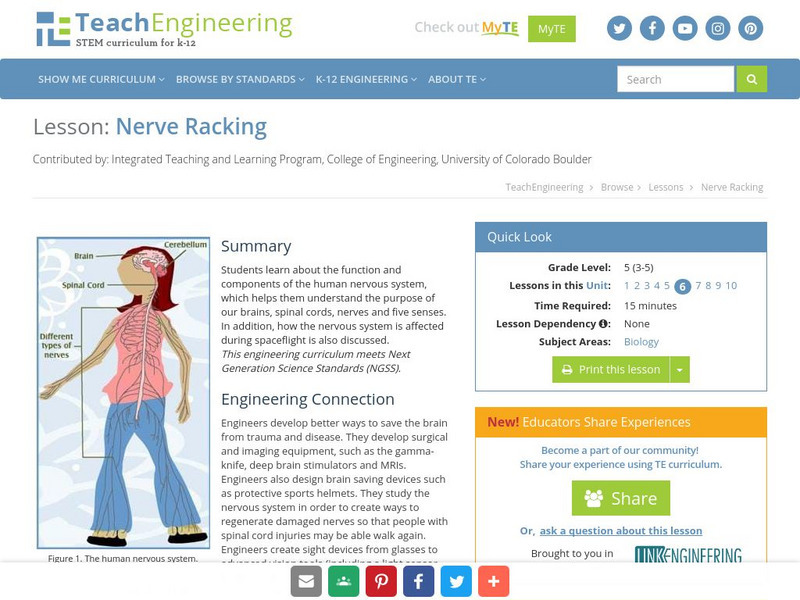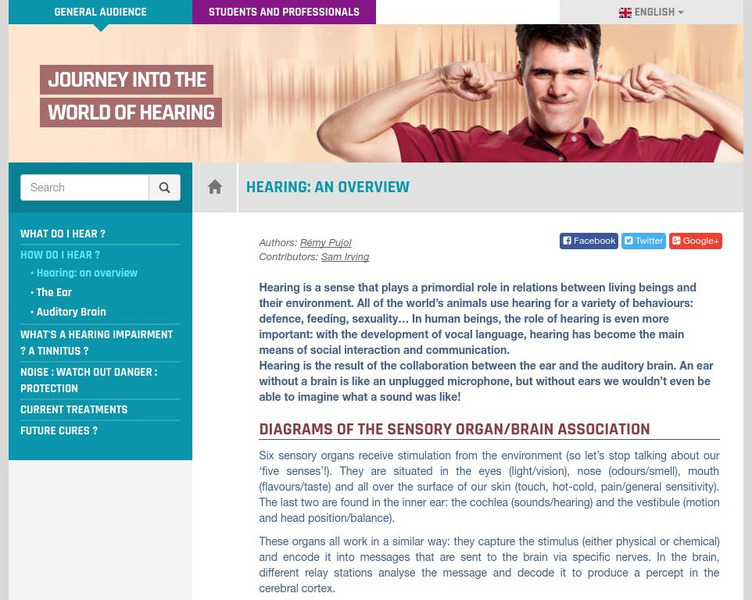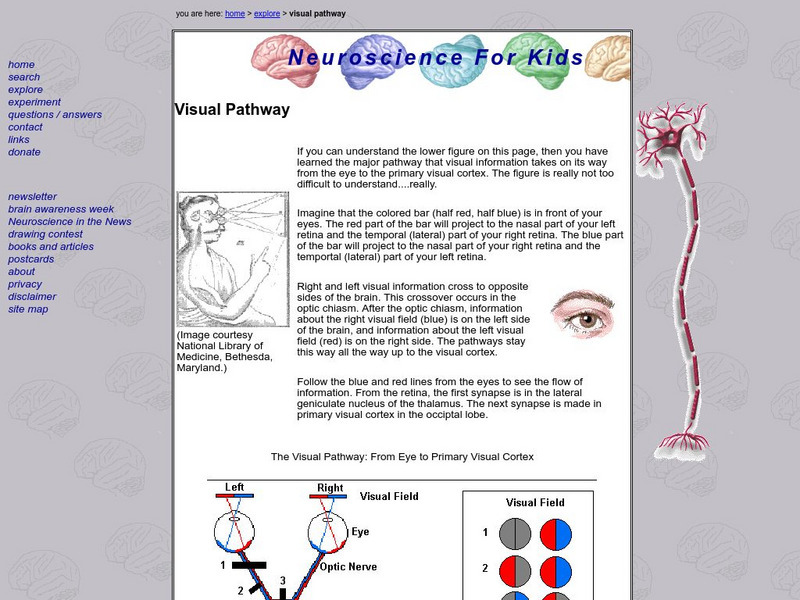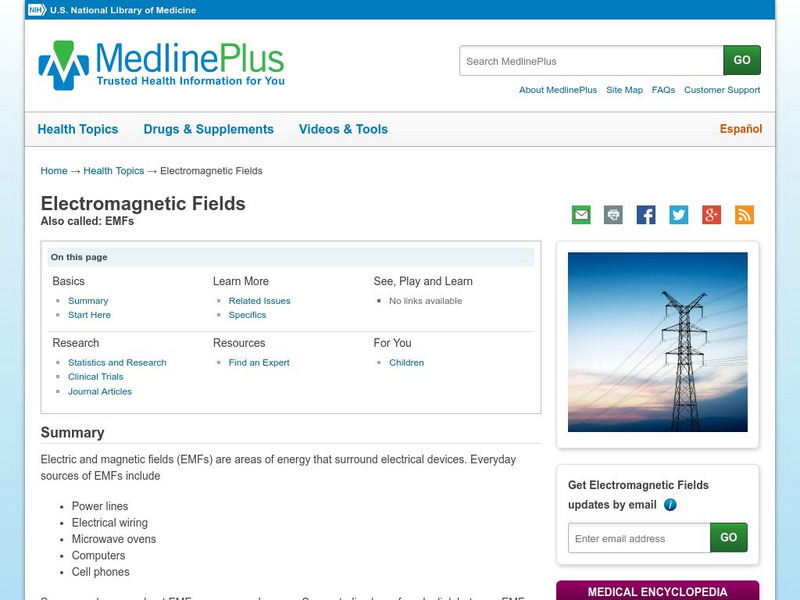TeachEngineering
Teach Engineering: Control Using Sound
Students gain a deeper understanding of how sound sensors work through a hands-on design challenge involving LEGO MINDSTORMS NXT taskbots and sound sensors.
TeachEngineering
Teach Engineering: Don't Bump Into Me!
Students' understanding of how robotic ultrasonic sensors work is reinforced in a design challenge involving LEGO MINDSTORMS NXT robots and ultrasonic sensors.
National Endowment for the Humanities
Neh: Edsit Ement: Fear and the "Dagger of the Mind"
This lesson plan accompanies a reading of Shakespeare's Macbeth and lets students explore Macbeth's "response to fear" through studying metaphor, imagery, and dramatic cues and by performing a scene.
TED Talks
Ted: Ted Ed: Inside Your Computer
How does a computer work? The critical components of a computer are the peripherals (including the mouse), the input/output subsystem (which controls what and how much information comes in and out), and the central processing unit (the...
TED Talks
Ted: Ted Ed: How Does Your Body Know What Time It Is?
Being able to sense time helps us do everything from waking and sleeping to knowing precisely when to catch a ball that's hurtling towards us. And we owe all these abilities to an interconnected system of timekeepers in our brains. But...
TED Talks
Ted: Ted Ed: The Pattern Behind Self Deception
Michael Shermer says the human tendency to believe strange things- from alien abductions to dowsing rods- boils down to two of the brain's most basic, hard-wired survival skills. He explains what they are and how they get us into...
Frontiers Media
Frontiers: Thanks for the Memories
Everyone wants a good memory but we don't often ask ourselves what memory is for. Let's begin our exploration of why memory is important and how it works with a little memory test: Do you remember what you learned in class last...
Exploratorium
Exploratorium: Science Snacks: Proprioception
The human body has proprioceptors that send signals to the brain so that we are aware of our body's position and movements. Try these simple experiments to learn about proprioception and about other visual and tactile clues that assist...
TeachEngineering
Teach Engineering: Nerve Racking
This instructional activity describes the function and components of the human nervous system. It helps young scholars understand the purpose of our brain, spinal cord, nerves and the five senses. How the nervous system is affected...
Other
Partnership for a Drug Free America: Pcp
This site from the Partnership for a Drug-Free America is organized in question/answer format, this website provides a good introduction for students wanting to know about PCP and its hazardous effects on the human body and brain.
NeurOreille
Neur Oreille: Journey Into the World of Hearing: How Do I Hear?
See how the human ear senses a sound, and how that stimulus is transmitted to the brain for interpretation and response.
Other
Simply Psychology: Information Processing
Explains what is meant by information processing in the brain and the influence of computers on the thinking of cognitive psychologists. Describes the role of attentional capacity in humans' ability to process information and how models...
Seeker
Seeker: Creating False Memories in Mice
Article reports on a study in which scientists implanted false memories in the minds of rats. Includes a video.
University of Washington
University of Washington: Central Visual Pathways
Explore the world of central visual pathways. The visual pathway leads from the eye to the primary visual cortex. There is a detailed visual description of this process. Check it out.
University of Washington
Neuroscience for Kids: Reflexes
Site provides interactive activities to use in the classroom to test one's reflexes. Also includes more reaction time experiments as well as links to more fun activities.
US National Library of Medicine
Medline Plus: Electromagnetic Fields
This site provides links to a variety of government-sponsored overviews and articles on electromagnetic fields and their associated health risks.
Read Works
Read Works: Double Vision
[Free Registration/Login Required] An informational text about how 3-D televisions work. A question sheet is available to help students build skills in reading comprehension.


